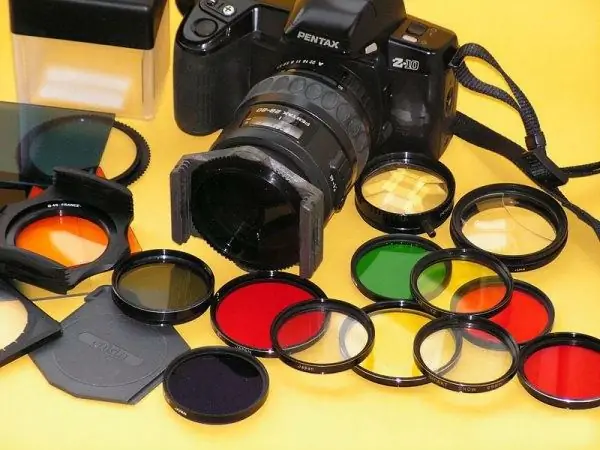A gradient filter is a transparent glass or optical plastic plate on which a gradient is applied. It acts as a transition from one color to another in the image. The filter uses a simple gray to transparent gradient.

What is a gradient filter important for?
A gradient filter is most commonly used by professional landscape photographers. The problem of improper exposure of the lower and upper parts may arise precisely during landscape photography. The imbalance is created by the fact that the sky almost always looks much brighter than the earth. When photographing a sunset, only very dark outlines of objects on the ground may remain in the image. In a situation like this, only a gradient filter can correct the position of the bottom of the photo.
There are lens-specific filters that can give your shots unusual effects and interesting color variations. Often, the transition from the transparent part of the filter to the shadow must correspond to one of three exposure levels. Therefore, it is not at all difficult to find the optimal shooting conditions.
Gradient filters are most in demand among the owners of film cameras, because the film has a limited range of photosensitivity. But its use on digital models also allows you to really save time and avoid working with complex programs that not every photographer can handle.
Varieties of filters
It is customary to select round and rectangular gradient filters. The former have a special thread for screwing onto the lens, and rectangular filters are installed directly into the holder, which is attached to the lens.
The main advantage of round filters is that they are made of optical glass. Sometimes the glass is coated with several layers of coating. But it will be impossible to move the mark of the section of the dark and light sides. This is a clear disadvantage of the round filter. But such filters are very compact and easy to transport.
As for rectangles, they are made of plastic and are usually strongly exposed to various mechanical influences. The rectangular filter can be easily rotated and moved up and down to provide ample photo opportunities. But he has no enlightenment. If you plan on shooting a landscape with this gradient filter, it is recommended that you use a tripod. This is due to the fact that the plastic plate adds extra interfaces to the lens. This can significantly reduce sharpness. Accordingly, you will have to double the shutter speed.






